 If you’re shopping on Amazon.com for Cyber Monday, be sure to do so via this link and some of what you spend will automatically help fund us!!
If you’re shopping on Amazon.com for Cyber Monday, be sure to do so via this link and some of what you spend will automatically help fund us!!
Visibly take a stand against street harassment with stickers, buttons, tote bag, a mug or more! Here are designs from our store (profits help fund our work). Take advantage of great Cyber Monday deals! Most items are at least 40% off and some are up to 70% off! Here are my favorites.
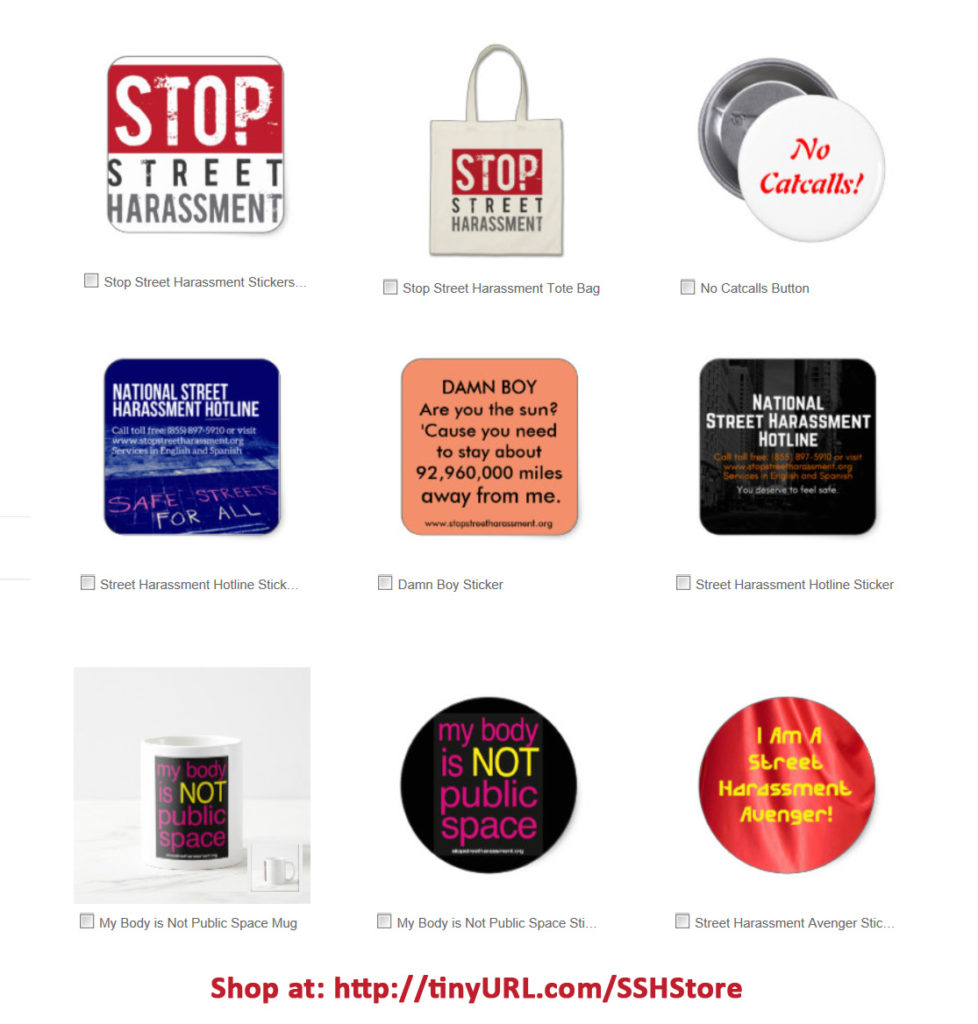

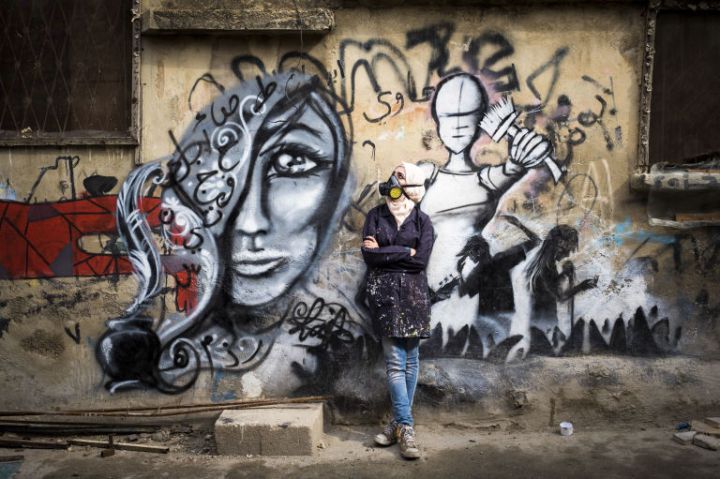 Laila Ajjawi is a renowned Palestinian graffiti artist and activist living in Irbid, Jordan, working to help empower women and communities of refugees. Through her artwork, she seeks to highlight discrimination, navigate Palestinian identities, deconstruct gender ideology, and reclaim the largely male-dominated Jordanian public space. By placing women at the centre of her pieces and celebrating female potential in all facets of life, she is challenging patriarchal attitudes and changing social perceptions.
Laila Ajjawi is a renowned Palestinian graffiti artist and activist living in Irbid, Jordan, working to help empower women and communities of refugees. Through her artwork, she seeks to highlight discrimination, navigate Palestinian identities, deconstruct gender ideology, and reclaim the largely male-dominated Jordanian public space. By placing women at the centre of her pieces and celebrating female potential in all facets of life, she is challenging patriarchal attitudes and changing social perceptions.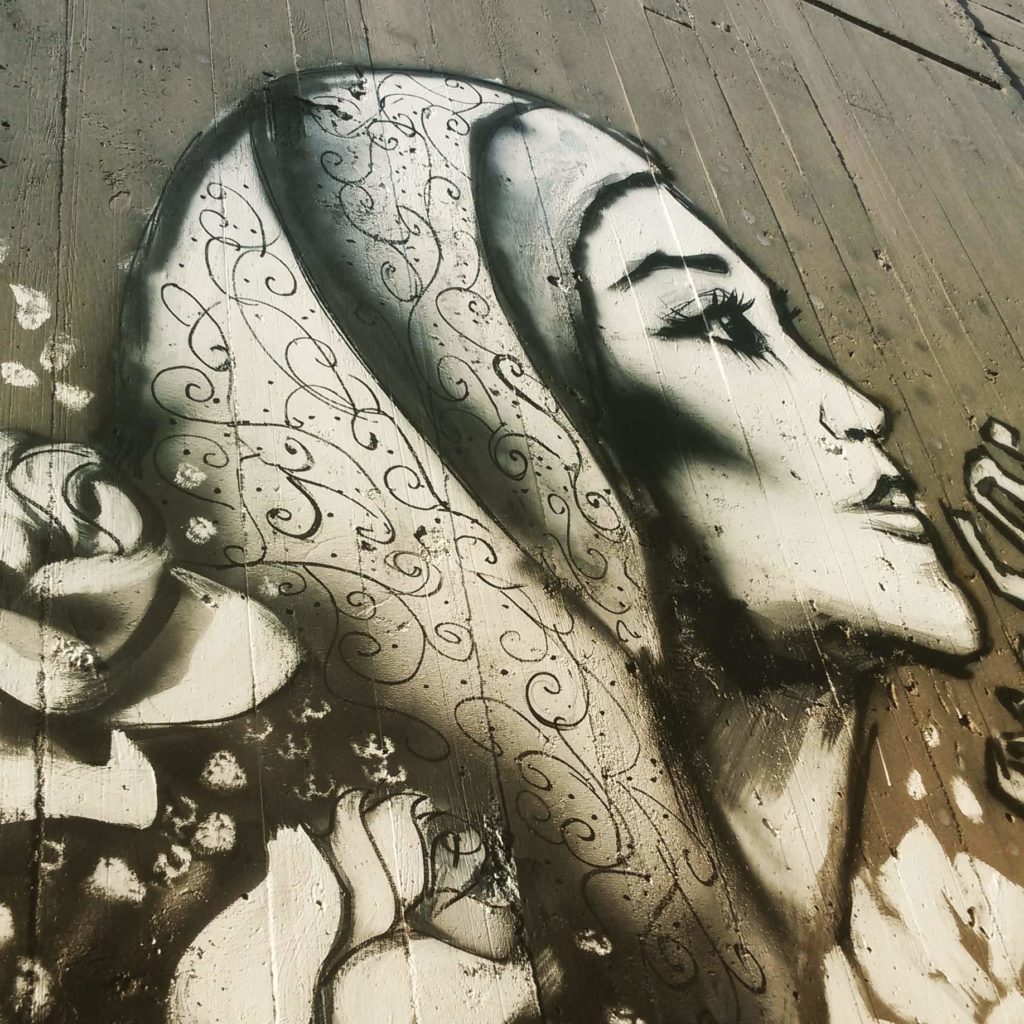 Your work is bold, brave, and powerful, rich with imagery and symbolism. Can you detail your creative process? What inspires you to create?
Your work is bold, brave, and powerful, rich with imagery and symbolism. Can you detail your creative process? What inspires you to create?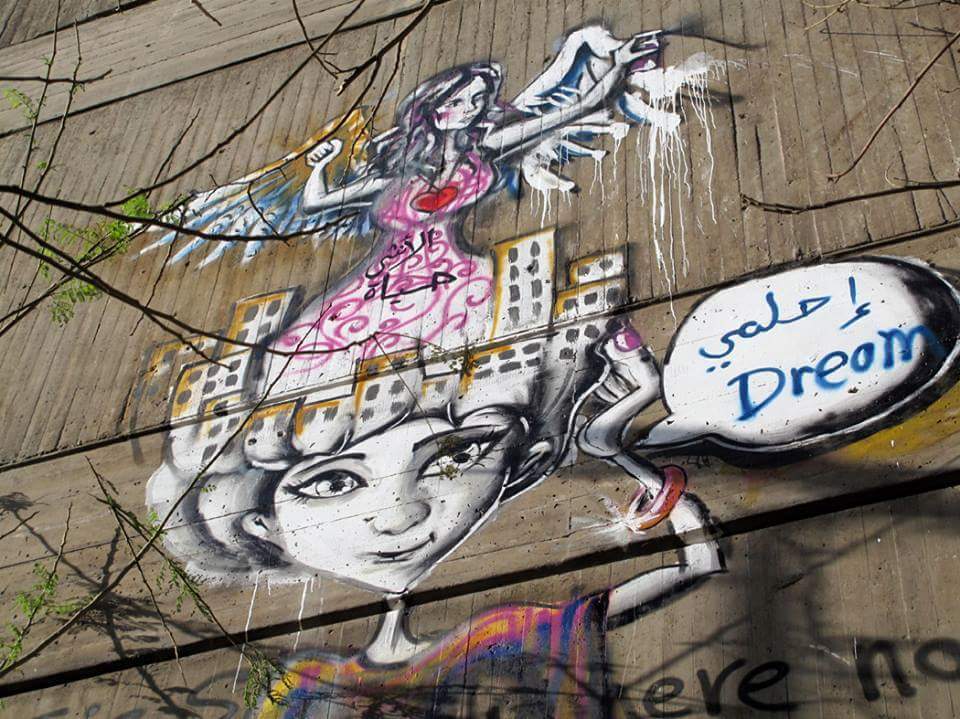 How did you get into graffiti? What about it speaks to you over other art forms?
How did you get into graffiti? What about it speaks to you over other art forms?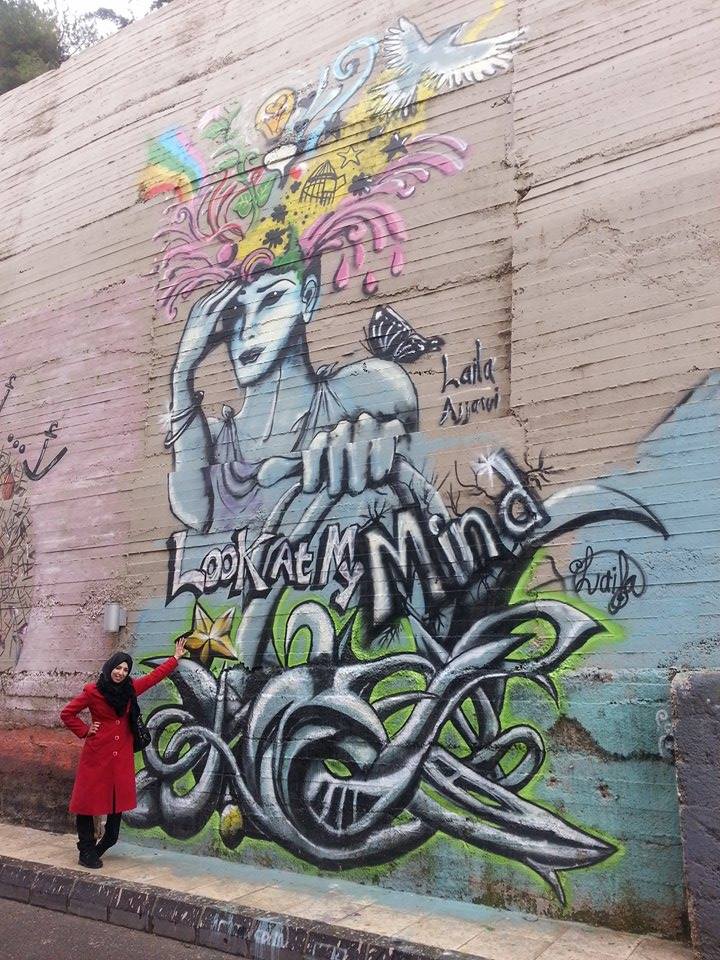 Is feminism considered a dirty word in the Arab world?
Is feminism considered a dirty word in the Arab world?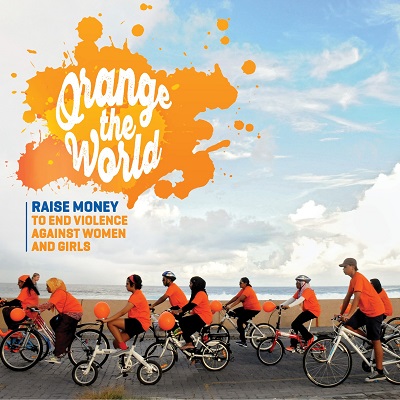
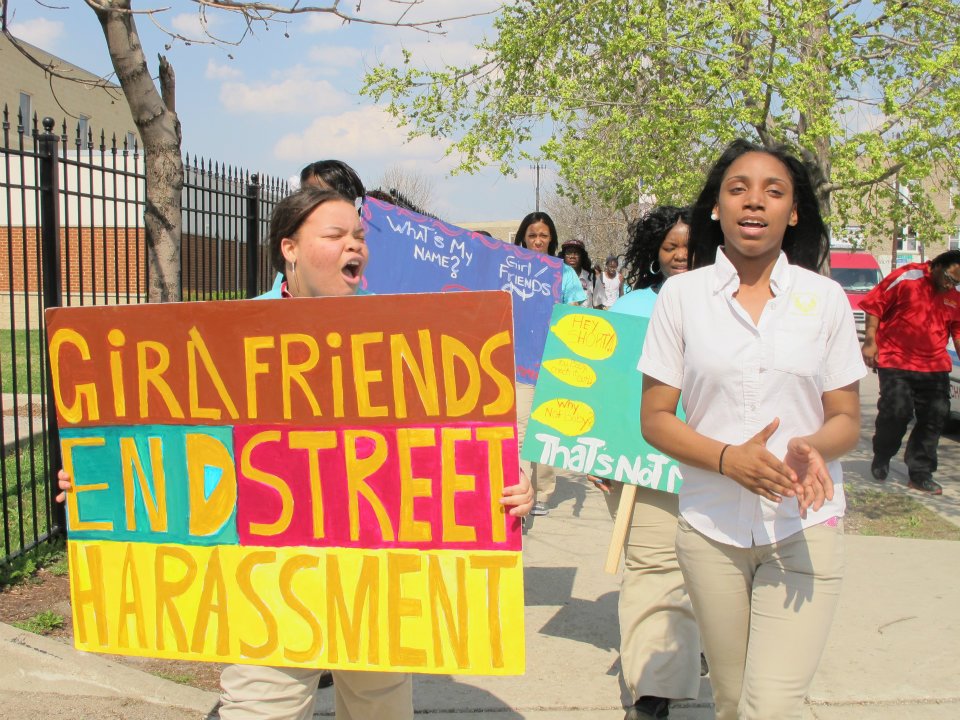
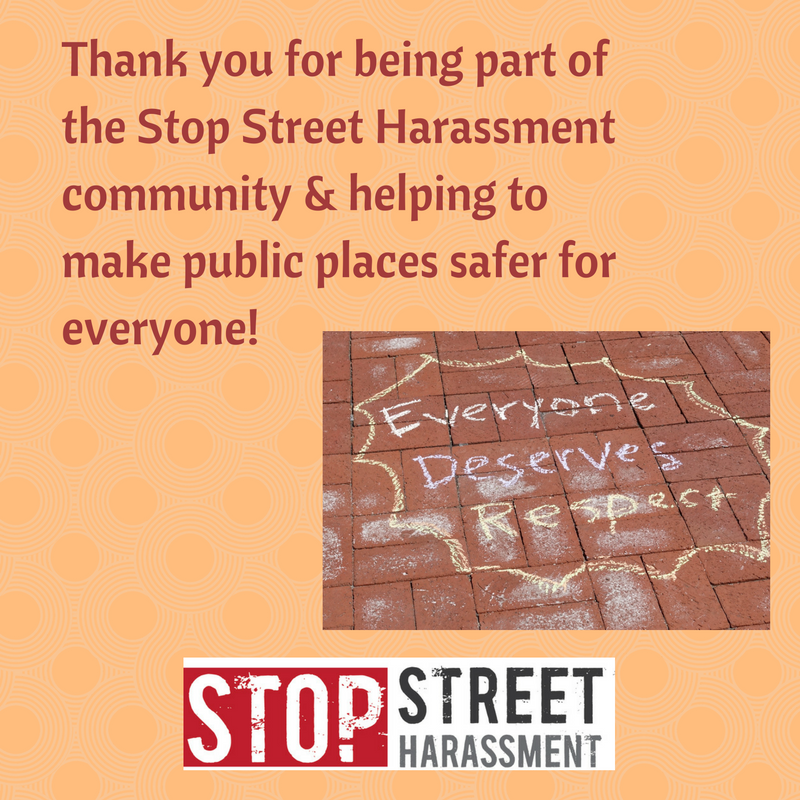 On this day of giving thanks, I give thanks for everyone who is part of the Stop Street Harassment community. This includes:
On this day of giving thanks, I give thanks for everyone who is part of the Stop Street Harassment community. This includes: